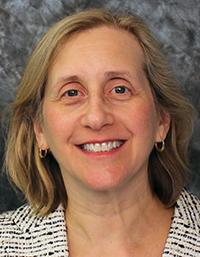

Targeting cancer treatment through machine learning and medicine
In the latest example of computing’s potential to transform health care, a team of UW researchers is applying a combination of machine learning and big data to improve outcomes for cancer patients.
Their approach, published today in Nature Communications, would enable physicians to deliver targeted treatment to patients based on their individual gene expression profiles and sensitivity to certain drugs or classes of drugs.
Led by professors C. Anthony Blau and Pamela Becker in the Division of Hematology, professor Su-In Lee (Allen School and Department of Genome Sciences) and Ph.D. candidate Safiye Celik (Allen School) the researchers have developed a new machine learning algorithm called MERGE (Mutation, Expression hubs, known Regulators, Genomic CNV, and mEthylation).
MERGE can be used to identify reliable biomarkers of therapeutic response to 160 anti-cancer drugs in cases of acute myeloid leukemia (AML) by using a novel artificial intelligence approach for prioritizing genes based on their relevance as drivers of disease progression and observed drug response.
The system models a weighted combination of these features to learn each gene’s MERGE score, which is an indicator of its potential reliability as a biomarker for drug sensitivity.
"This has been ten years in the making," said Becker. "We are now able to correlate gene expression to drug sensitivity screening for Acute Myeloid Leukemia."
The researchers developed MERGE using publicly available AML data and gene annotation databases, along with gene expression data from 30 patients diagnosed with AML and their in vitro sensitivity data for 160 approved or experimental chemotherapy drugs. They then tested its performance against four existing methods for predicting patient drug response: correlation-based methods, ElasticNet, multi-task learning, and Bayesian multi-task multiple kernel learning (MKL).
Not only did MERGE outperform in its ability to accurately identify reliable biomarkers for drug response; it discovered new gene-drug associations that those other methods failed to identify.
These findings are clinically important because they involve drugs such as mitoxantrone and etoposide that are included in typical AML treatment regimens today.
"Drug development is an expensive and challenging process, and cancers that appear pathologically similar can respond to the same drug regimen in different ways,” noted Lee. “There are more than 1,200 potential cancer medicines in development in the United States alone. We need better methods for matching patients to the most effective treatment, and that has been our goal in developing MERGE."
Contributors
In addition to Blau and Becker, Department of Medicine contributors to the project include Sylvia Chien, Jin Dai, Drs. Vivian Oehler and Elihu Estey (Hematology), and Akanksha Saxena, a former UW undergraduate honors biology major. Timothy Martins is the Director of the Quellos High Throughput Screening Core at the UW Institute of Stem Cell and Regenerative Medicine. From the Allen School and Department of Genome Sciences: Su-In Lee, Safiye Celik, Scott Lundberg and Javad Hosseini. Benjamin Logsdon is at Sage Bionetworks.
This work was supported by the National Institutes of Health, National Science Foundation, American Cancer Society, Life Sciences Discovery Fund, and philanthropic funding from Norman Metcalfe.